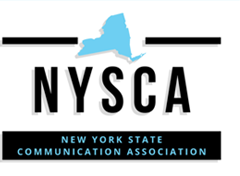Abstract
Schooling is driven by economic, political, societal, and cynical inclinations. Education has no rest, and it is continuous, even outside of the classroom. One thing that interconnects these terms together is a narrative. The narrative gives meaning to the world and exerts an end goal of success and happiness. Yet, the only way to reach this shared goal is through intrapersonal and interpersonal relationships. Undoubtedly, the technological landscape in the 21st century is robust and evolving. When a natural force beyond human control corrupts every aspect of society, such as a pandemic, these technologies are relied upon for human interaction. The coronavirus (COVID-19), a global pandemic, was recognized to sprout in the United States in February of 2020. Since then, the aforementioned end-goal of success and happiness was still pursued, but solely from the use of technological means.
The assumed order of society was rearranged, and interpersonal and intrapersonal relationships were altered. The coronavirus forced schools and campuses to shut down without warning as we suddenly zoomed into educational settings. By April 2020, 98% of institutions replaced the majority of in-person classes with remote learning. Institutions worldwide were forced to pivot on a dime to transition from the physical to virtual spaces requiring monumental adaptations. With the relatively quick shift to quarantine lifestyles, students, parents, and school personnel were blindsided and forced into a period of enormous adjustment. New ways of learning, teaching, and parenting were required seemingly overnight. Veteran teachers were asked to convert lessons and master new technologies. Parents were asked to assist their children while trying to obtain materials, needed technology and, for some, learn it themselves. Students were asked to devote their attention and screen time to lessons and learning apart from their classmates and teachers. The transition from classroom instruction to learning completely online learning was unprecedented.
As students of Mediated Interpersonal Communication, this situation offered an opportunity to try to understand the mediated environments we were moving into and perhaps predict some of the ways the pandemic, which required a move toward greater reliance on media, has and will impact our future interpersonal relationships and our education. The research undertaken offers a snapshot in time during late March and early April 2020. The challenges and issues reported can inform future preparedness.
The approach to the interpersonal nature of education is rooted in the work of Neil Postman (1996), who argued for the need to address a fundamental question regarding what schools are for. The importance of schools in the process of socialization, interpersonal, and group interaction is at the heart of this study. This research reflects concerns about whether social distancing would lead to a lack of interaction in which children can learn about their environment and themselves. What would this shift to virtual classrooms mean to the parent and child relationship as children needed to rely on parents to help with their education more than usual? This research sought to learn how social isolation could change family dynamics and how the educational process could be hurting parents, students, and educators. We sought to add to our understanding of how the media can be altering our educational relationships in an age of social distancing.
Recommended Citation
Brown, Jared; Folk, Kaila; and Swerdlow, Jenna
(2021)
"The Virtualization of Schooling During the COVID-19 Pandemic,"
Proceedings of the New York State Communication Association: Vol. 2020, Article 5.
Available at:
https://docs.rwu.edu/nyscaproceedings/vol2020/iss1/5
Included in
Communication Commons, Disability and Equity in Education Commons, Educational Administration and Supervision Commons, Film and Media Studies Commons, Higher Education Commons

